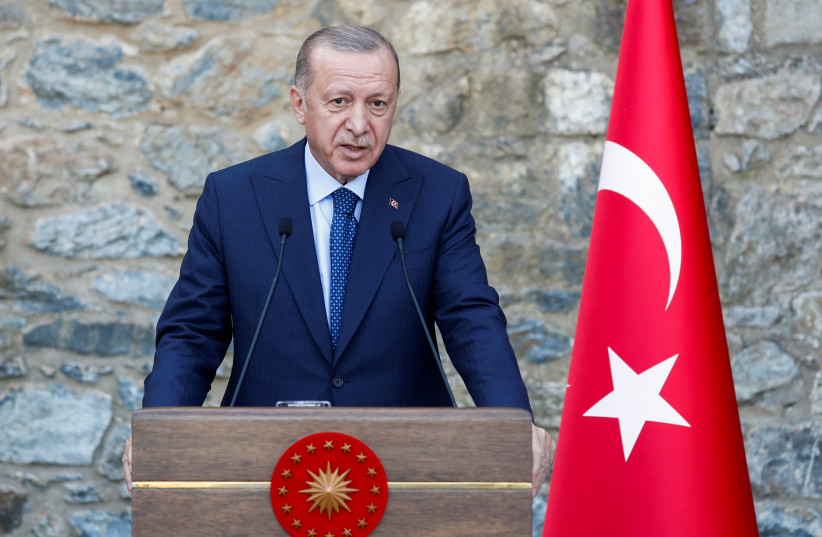Two events are influencing Israeli-Turkish relations in the period ahead. First, since he came into office, President Isaac Herzog appears to be seeking to advance a thaw in the relations between Israel and Turkey. There have been at least three telephone conversations between President Erdogan and his Israeli counterpart. The conversations between the two presidents led to speculation that Herzog would be visiting Turkey in the not-to-distant future.
It should be recalled that since 2008, there has been a steady deterioration in the relations of the two countries, after the IDF entered the Gaza Strip during Operation Cast Lead, against Hamas.
What first demonstrated the change in Turkey’s attitude was the rhetorical exchange between Erdogan and President Shimon Peres at Davos in 2009 when the Turkish president stormed off the stage amid an exchange of shouting. Months later, a Turkish government-backed foundation, known as the IHH, dispatched a flotilla to break the naval blockade of Gaza. Israeli naval commandos boarded the ships including the lead boat, the Mavi Marmara. A UN report concluded that Israel’s blockade of Gaza was legal but that did not alter the downwards trend in Israeli-Turkish relations.
Israel tried to reverse this trend through reconciliation talks with Turkey and negotiations over Israeli compensation for Turkish citizens that died in the Israel raid. In 2016, both states signed the reconciliation deal through their foreign ministries.
The hardest issue they faced was the insistence of Turkey to leave open the Hamas office in Istanbul though Turkey committed itself to not allow from its territory any terror attack on Israel. (In 2014, the head of the Hamas office, Saleh al-Arouri, admitted that a Hamas attack in which three Israeli teenagers were kidnapped and killed, was ordered by him, when he was on Turkish soil.) Israel got the Turks to evict Arouri, but other Hamas members remained. Hamas may be defined as an illegal organization in Egypt, Saudi Arabia and in the UAE, but glaringly not in Turkey.

In the last few weeks, a second development might accelerate an Israeli-Turkish reconciliation. The decision of the Biden administration to remove its support for the undersea pipeline connecting Israeli and Cypriot gas in the Mediterranean to Europe through Greece and Italy, came as a disappointment for those who invested in this project.
Washington’s decision, moreover, was surprising considering its decision to back the Russian Nord Stream gas pipeline to Germany. The US has cut the pipelines of its friends like Canada (Keystone) and Israel but has unfortunately backed the pipelines of its adversaries. But Turkey stands to benefit with the Israeli-Cypriot-Greek project sidelined and Turkey emerging as a new gas hub for the Middle East.
With the weakening of western resolve to confront Iran, Turkey remains an important potential ally in at least one major Middle Eastern challenge. The normalization of Turkish-Israeli relations is important, but it will not be smooth. In 1941, while the British rejected Soviet policy in Europe, they ultimately embraced Stalin’s Soviet Russia because of a greater evil – Germany. These are the tough considerations which Israel will have to apply with respect to Turkey, as Iran moves forward in completing a nuclear weapons capability and seeks to implement its program of expansionism across the Middle East.
The writer is president of the Jerusalem Center for Public Affairs. He served as Israel’s ambassador to the UN and as the director-general of the Ministry of Foreign Affairs, at which time he was intimately involved in Israeli negotiations with Turkey.
